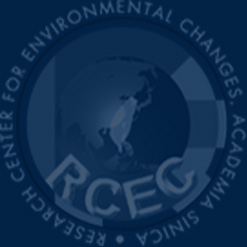

Lo, Min-Hui羅敏輝
Joint Appointment Research Fellow
Research Interests
Dr. Lo's research has focused on understanding the linkages and feedback mechanisms between the land and the climate, especially in the following areas:
1.Land-Atmosphere interactions:Understand the interactions and feedback processes between the land and atmosphere.
2.Anthropogenic effects on the water cycle:Quantify human activities on the freshwater redistribution and use the climate model to explore the anthropogenic impacts on the regional/global hydrological cycle.
3.Hydro-Climatology in cloud-fog forest: explore the role of fog and canopy water in water, energy, and carbon cycle in cloud forest.
Representative Publications
Chen, C.-C., Min‑Hui Lo*, E.-S. Im, J.-Y. Yu, Y.-C. Liang, W.-T. Chen, I. Tang, C.-W. Lan, R.-J. Wu, R.-Y. Chien (2019), Thermodynamic and dynamic responses to deforestation in the Maritime Continent: A modeling study, Journal of Climate, DOI: 10.1175/JCLI-D-18-0310.1
Chia‑Wei Lan, Min‑Hui Lo*, Chao‑An Chen, Jia‑Yuh Yu (2019), The mechanisms behind changes in the seasonality of global precipitation found in reanalysis products and CMIP5 simulations, Climate Dynamics, https://doi.org/10.1007/s00382-019-04781-6
Wen-Ying Wu, Min-Hui Lo*, Yoshihide Wada, James S. Famiglietti, John T. Reager, Pat J.-F. Yeh, Agnès Ducharne & Zong-Liang Yang (2020) Divergent effects of climate change on future groundwater availability in key mid-latitude aquifers. Nature Communications 11, 3710. https://doi.org/10.1038/s41467-020-17581-y
Min-Hui Lo*, Wen-Ying Wu, Lois Iping Tang, Dongryeol Ryu, Mehnaz Rashid, Ren-Jie Wu (2021) Temporal Changes in Land-Surface Coupling Strength: An Example in A Semi-Arid Region of Australia, Journal of Climate, 34, 4, 1503–1513, https://doi.org/10.1175/JCLI-D-20-0250.1
Xiao, H.-M., M-H. Lo*, and J.-Y. Yu (2022) The Increased Frequency of Combined El Nino and Positive IOD events since 1965s and Its Impacts on Maritime Continent Hydroclimates, Scientific Reports, 12, 7532, https://doi.org/10.1038/s41598-022-11663-1
Highlights
Dr. Lo’s research has concentrated on understanding linkages and feedbacks between the land and the climates, focusing specifically on how land hydrological processes affect the local/regional/global climate and exploring how anthropogenic forcings (such as irrigation, deforestation, CO2 concentrations, etc.) impact the hydrological cycle across various spatiotemporal scales by using satellite datasets, in-situ observations, reanalysis datasets, and climate models.
A critical issue in hydro-climatology is quantifying the complex feedback between soil moisture and precipitation. Dr. Lo characterizes the spatial distribution of precipitation in relation to soil wetness and mesoscale soil moisture heterogeneity, which enhances our understanding of soil moisture–precipitation spatial coupling. It also highlights the importance of land surface hydrological processes in the climate system, with implications for precipitation changes during the dry regions that are not accurately observed in most current climate models. Furthermore, Dr. Lo applies this concept to explore the anthropogenic forcings’ fingerprint on the hydrological cycle. He studies the impact of the Maritime Continent’s land-use changes (deforestation) on the atmospheric convection and larger-scale climate, in which the deforestation in the Maritime Continent regions can increase the low-level water vapor convergences from the surrounding ocean that may destabilize the atmosphere, leading to potentially higher precipitation rates. These findings are different from what we thought previously about drying effects from land-use changes, which indicates the importance of regional dependence on the impact of land hydrological processes. The results also reveal possible reasons contributing to the disagreement among precipitation responses in current model simulations, providing clues to improve the climate models. Dr. Lo also uses model simulations and satellite datasets to evaluate and constrain the climate model’s land water storage simulations and rainfall anomalies, providing a comprehensive assessment of the reliability of the simulated land water storage that can be used to guide future water resource assessment. The above achievements are essential to understanding the interactions between the land surface and the climate, and expose the complex nuances of these land–atmosphere interactions, with implications for precipitation changes and water cycles under climate changes and land use changes.

(02) 3366-3918
minhuilo@ntu.edu.tw